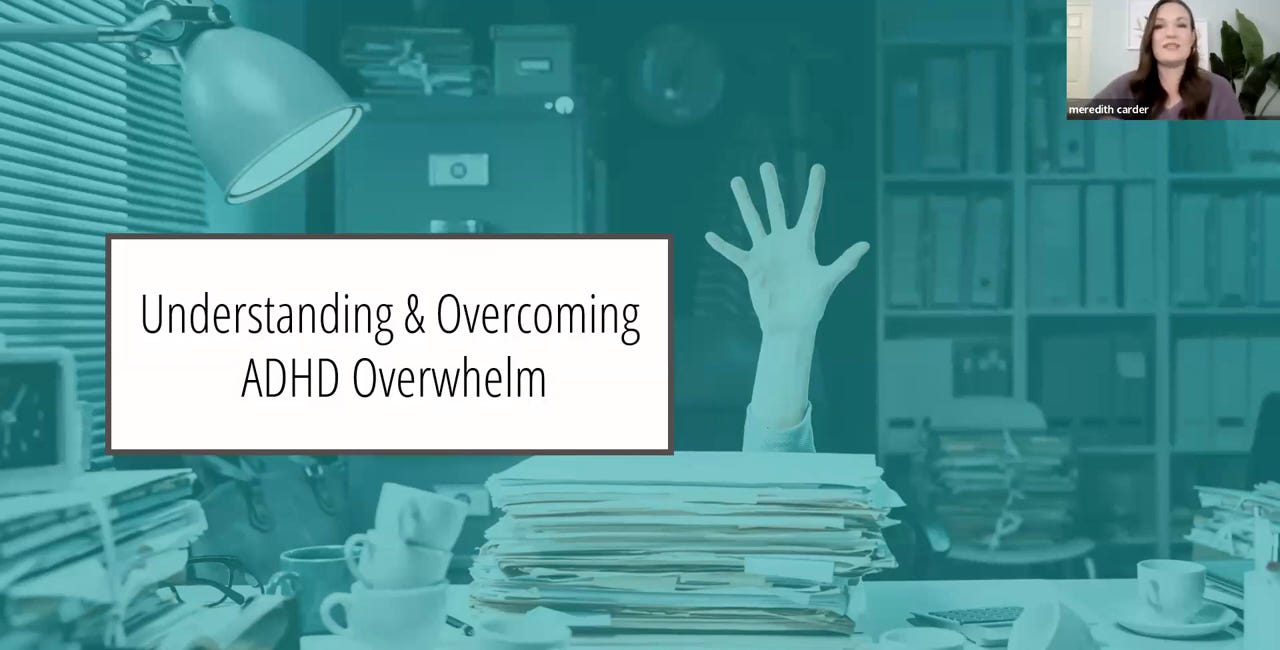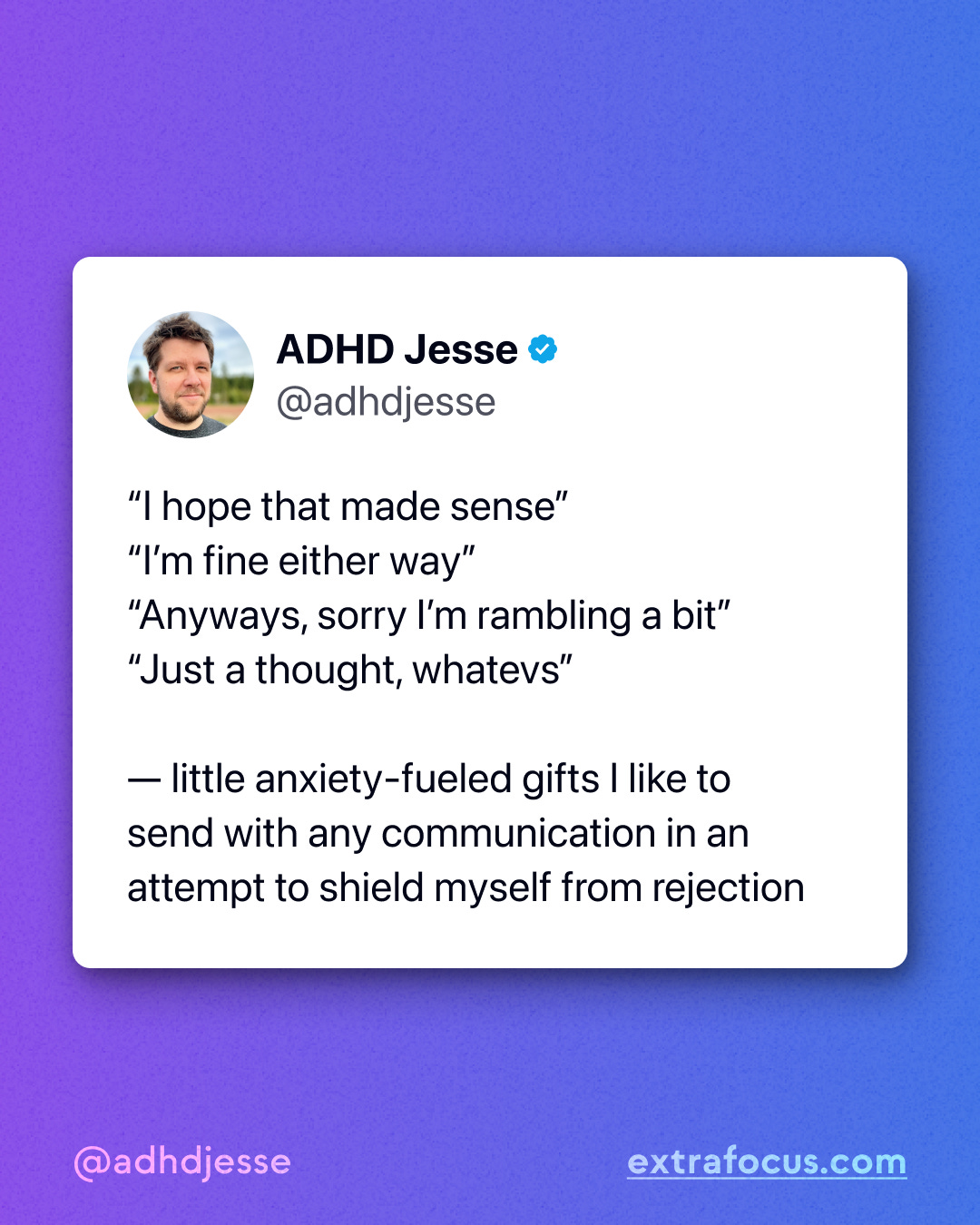Should I Tell My Boss I Have ADHD?
Hey friend—this newsletter is supported by readers like you. If you love it or find value from it, consider becoming a paid supporter! You’ll unlock every article in the archive and gain full access to the Member Resource Hub. This week on The Distractables podcast, we have a new episode with Meredith Carder talking about ADHD in the workplace, whether or not you should disclose your diagnosis, and what accommodations might be available. Check it out here: Paid subscribers of Extra Focus get early access to new episodes of The Distractables via the Unfocused podcast feed at extrafocus.com/podcast. Meredith recently wrote the excellent post ADHD Myths: Only Boys Have ADHD, and in the Member Resource Hub we have a recording of the live talk she gave earlier this year on dealing with ADHD Overwhelm. Many countries have protections in place for disclosing ADHD at work, but the reality is… it’s just not that simple. In our conversation with Meredith, we talk about how important it is to feel “safe” in your job, feeling like you are empowered to tell your boss without fear of negative repercussions. There’s no great universal answer because everyone’s job and/or situation is so radically different.
When I got diagnosed in 2017, I was lucky to have a manager at the time where I had no problem at all telling them right away - I was in a place where I felt safe to do so. We talked about how this had affected work in the past and if there was anything we could do to improve things now that we knew this information. One thing we started doing right away was a weekly check-in. I always fear that I’ve lost touch with how well or not I’m doing at work, I constantly think “Oh no, I’m about to get fired” even when I’m doing awesome just because I’ve so often been blindsided in the past. So with our weekly check-in I basically just got a quick message from my manager on Friday with a quick “everything’s great, keep going!” or a “I haven’t heard about project ____ in a few days - do you need any help with that? Other than that things seem good” message that helped me feel a bit more assured that things were going well (and occasionally reminded me when I completely forgot about an important project I was supposed to be doing!). But I’ve definitely had jobs in the past where I would’ve felt the opposite, and wouldn’t have wanted to say anything. At those jobs, with those managers, disclosing something like an ADHD diagnosis (had I known at the time) would have felt almost like giving them more ammo to criticize my work. I constantly felt like there was a judgmental eye on me, looking for anything I did wrong (which was often a lot in their eyes). Or often just judging me for doing things differently. I feel like they likely would have seen ADHD as more of an excuse, rather than to seek better understanding. (maybe they should read up some on ADHD Myths…) Here are a few resources on helping you navigate your journey if you’re considering whether or not to disclose or what you could do to improve your work environment. Resource: Understood.orgUnderstood.org is a fantastic resource with a page dedicated to workplace supports and accommodations. Here’s an abbreviated list of their recommendation for how to ask for a workplace accommodation:
Whatever the case, whether you disclose or not there are some accommodations that you may find available for you. While there are supposed to be legal protections if you have disclosed, you may find some of these can be suggested to a boss as something like “this works better for me, because I struggle with getting distracted” or something like that. Resource: JAN (askjan.org)Another great resource for workplace accommodations is JAN (Job Accommodation Network). On this page dedicated to ADHD, scroll down to the “Accommodation Ideas” section to see many ideas depending on the specific limitation or work-related function you may struggle with. Stay curious, P.S. Next week I’m participating in the Navigating a Late ADHD Diagnosis panel! I’m joining Trina Haynes and Chris Wang and we’ll be discussing the unique challenges of getting diagnosed with ADHD later in life and also answering lots of questions. It’s gonna be fun and it’s free to register for! This newsletter is supported by readers like you! Become a paid supporter to unlock every article in the archive and gain full access to the Member Resource Hub. |
Similar newsletters
There are other similar shared emails that you might be interested in:




